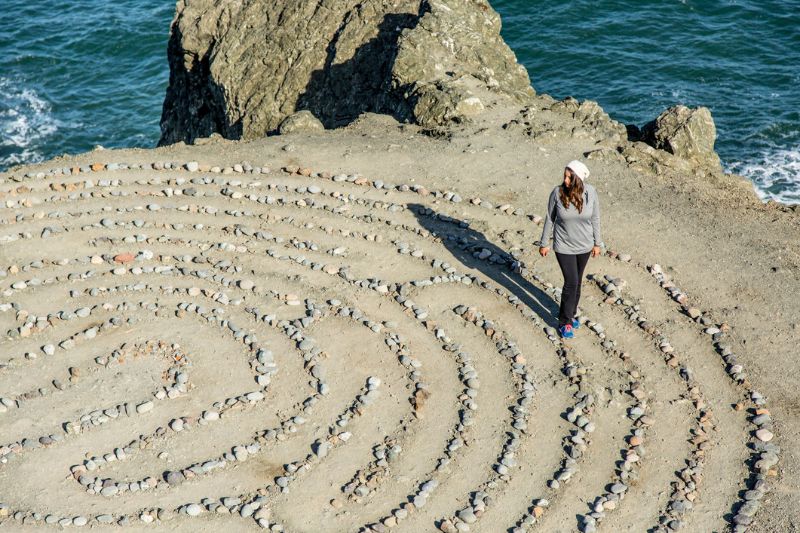It’s a long time ago now, but my middle son used to help me with the dinner dishes. I did the washing, he the drying. He was coping with cutlery one night when he suddenly looked up and asked, Why did God make the world and us? I nearly broke a plate in my struggle to provide an answer, but he already had one. After a moment’s silence broken only by my splashing about in the sink, he said, I suppose He did it because He was lonely. This, according to a clerical friend I consulted later, was a very theologically sound answer, involving the whole notion of God the Creator. My helpful son was four years old.

I first studied the play 'Androcles and the Lion' when I was about sixteen, and have been a George Bernard Shaw fan ever since. A maverick genius if ever there was one, Shaw is famous, among other things, for his acerbic wit, his eccentric opinions, and his lack of consistency. He once said that the longer he lived the more he was convinced that other planets used this one as a lunatic asylum, and one can see his point. He also seems to have been a kind and often generous man.
Raised in Dublin, Shaw was part of the so-called Protestant Ascendancy, but later declared I’m an atheist and I thank God for it. He also gave it as his opinion that Christianity might be a good thing if anybody ever tried it. But at some point he was asked if he were a Christian. Yes, he replied, but I often feel very lonely.
On a surface level, Shaw would feel even lonelier today, because, for the first time and according to census figures, less than half the population of England and Wales considers itself Christian. 46 per cent of people say they are Christian, which figure is down from the 59 per cent registered in 2011. (This is in marked contrast to Greece, where I live: here 98 per cent of the population identifies with Orthodoxy, even though Greece is officially a secular state.) In addition to the above census figures, 37 per cent of the English and Welsh population claims to be of ‘no religion.’
In Australia the picture is much the same, but shows an even steeper decline in the number of people professing to be Christian. In 2011 the proportion was 61 per cent, but by 2021 that figure had sunk to 43.9 per cent. And the ‘no religion’ figure is higher than in Britain at 38.9 per cent. The fastest-growing religion in Australia is Hinduism, with Buddhism close behind, while Islam is the fastest-growing in Britain.
In the words of the late and much-lamented Julius Sumner Miller Why is it so? One answer to this question, with regard to both countries, is that of immigration. Many of Britain’s immigrants come from Muslim countries, while Australia’s population features large numbers of people from India and Nepal. This era will go down in history as the one in which the Mayor of London was a Muslim and the Prime Minister of Britain a Hindu. Similar developments have yet to happen in Australia, but seem to me to be inevitable.
'People are less inclined to put up with hypocrisy when they learn about the foibles (or worse) of powerful people, including the so-called religious. Many individuals are now more able to resist the kind of social pressure that made it ‘the done thing’ to be a believer. Perhaps there is a more honest approach to admitting doubt?'
The ‘no religion’ question is more complicated and more interesting, at least to me, and connected with another type of social change. Of course my suggested answers are over-simplified, and not sufficient, but still. We live in a much more complex world than previously. Even in my own childhood, most strata of society, at least in a country township, operated within the set framework of home, school and church. It was accepted as a fact that most people were believers of varying degrees of conviction and form. Agnosticism and atheism were not matters for discussion.
Acceptance was a way of life then and for centuries beforehand. Belief was seen as being part of the individual in society and still is in some quarters: the Greeks I know, for example, will tell you that being Orthodox is simply part of being Greek. (The few Greek Jehovah’s Witnesses around have a hard time.) Religion for groups such as the Orthodox is strongly connected with the need for emotional security and a recognisable identity.
Greece is still largely an agricultural society, but industrialisation seems to bring challenge and doubt with it. It seems to me that people are more cynical today: because of the efficiency of mass communication we know a lot more about everything, including the lives of those in power. People are less inclined to put up with hypocrisy when they learn about the foibles (or worse) of powerful people, including the so-called religious. Many individuals are now more able to resist the kind of social pressure that made it ‘the done thing’ to be a believer. Perhaps there is a more honest approach to admitting doubt? Perhaps there are other searches for meaning?
And perhaps my son is no longer as certain as he was about answers to eternal questions.
Gillian Bouras is an expatriate Australian writer who has written several books, stories and articles, many of them dealing with her experiences as an Australian woman in Greece.
Main image: Woman walksthe Land's End Eagle Point Labyrinth in San Francisco California. (Getty Images)